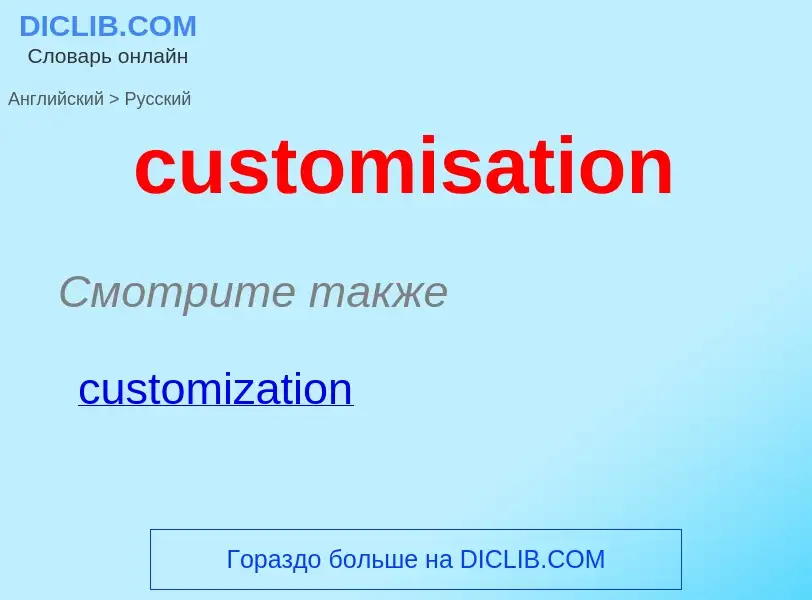Перевод и анализ слов искусственным интеллектом ChatGPT
На этой странице Вы можете получить подробный анализ слова или словосочетания, произведенный с помощью лучшей на сегодняшний день технологии искусственного интеллекта:
- как употребляется слово
- частота употребления
- используется оно чаще в устной или письменной речи
- варианты перевода слова
- примеры употребления (несколько фраз с переводом)
- этимология
customisation - перевод на русский
Смотрите также
Определение
Википедия
In marketing, manufacturing, call centre operations, and management, mass customization makes use of flexible computer-aided systems to produce custom output. Such systems combine the low unit costs of mass production processes with the flexibility of individual customization.
Mass customization is the new frontier in business for both manufacturing and service industries. At its core, is a tremendous increase in variety and customization without a corresponding increase in costs. At its limit, it is the mass production of individually customized goods and services. At its best, it provides strategic advantage and economic value.
It is one of the product design strategies and is currently used with both techniques (delay differentiation and modular design) together with effective innovative climate to enhance the value delivered to customers.
Mass customization is the method of "effectively postponing the task of differentiating a product for a specific customer until the latest possible point in the supply network". Kamis, Koufaris and Stern (2008) conducted experiments to test the impacts of mass customization when postponed to the stage of retail, online shopping. They found that users perceive greater usefulness and enjoyment with a mass customization interface vs. a more typical shopping interface, particularly in a task of moderate complexity. From collaborative engineering perspective, mass customization can be viewed as collaborative efforts between customers and manufacturers, who have different sets of priorities and need to jointly search for solutions that best match customers' individual specific needs with manufacturers' customization capabilities.
The concept of mass customization is attributed to Stan Davis in Future Perfect, and was defined by Tseng & Jiao (2001, p. 685) as "producing goods and services to meet individual customers' needs with near mass production efficiency". Kaplan & Haenlein (2006) concurred, calling it "a strategy that creates value by some form of company-customer interaction at the fabrication and assembly stage of the operations level to create customized products with production cost and monetary price similar to those of mass-produced products". Similarly, McCarthy (2004, p. 348) highlights that mass customization involves balancing operational drivers by defining it as "the capability to manufacture a relatively high volume of product options for a relatively large market (or collection of niche markets) that demands customization, without tradeoffs in cost, delivery and quality".

